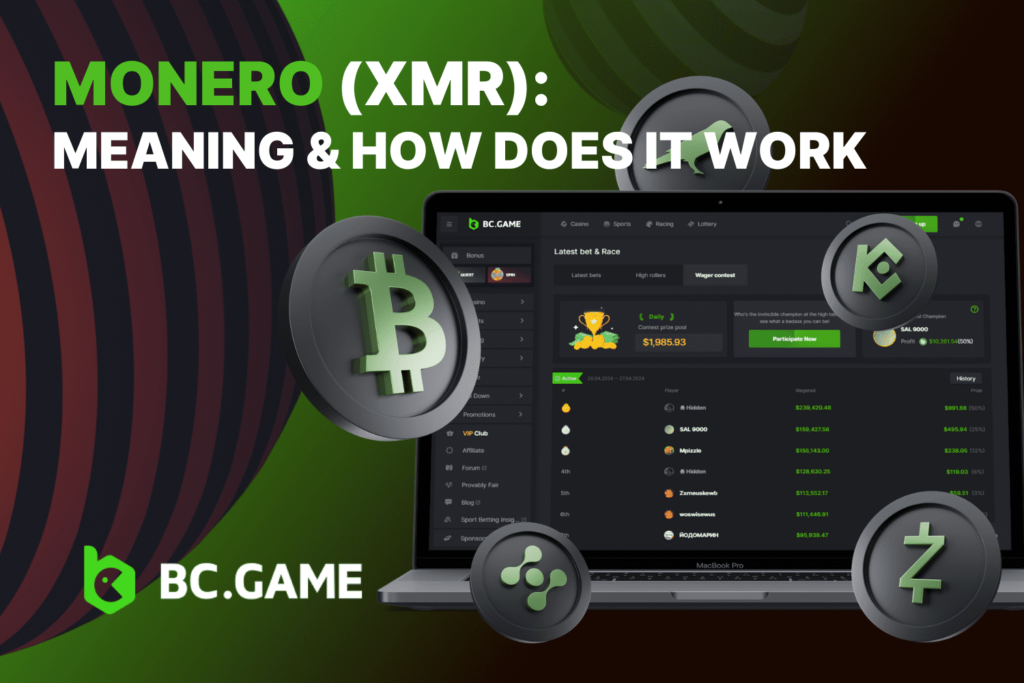
Monero is one of the top privacy coins, boasting anonymity and confidentiality in the financial world. Whereas Bitcoin’s transactions are traceable on a public ledger, it’s the contrary with Monero-the sender, receiver, and amount transacted are encrypted. That huge aspect of privacy turns Monero into a sought-after cryptocurrency for the discrete user. How does Monero work? How does it compare to other cryptocurrencies? Let’s dive into the details.
What is Monero (XMR)?
Monero in cryptocurrency means consideration of the aspect of privacy. The very concept of Monero provides full anonymity to the users by protecting their identity and concealing all transaction details. Unlike Bitcoin, anybody can trace the transactions on its public blockchain. Monero meaning to use advanced cryptographic techniques to blind these details. This makes it nearly impossible for outsiders to know who is sending, who is receiving, and how much.
What is XMR used for? Firstly, it is used like any other cryptocurrency for peer-to-peer transactions, but with the added advantage of being more private. Some people use it to maintain financial freedom, but Monero’s capability of cloaking transactions also raises heated debates regarding its use in money laundering and dark web transactions.
The debate between privacy and regulation is always alive in the cryptocurrency ecosystem, as this will be affecting every coin, yet most notably, Monero, because it’s geared toward anonymous transactions.
How Monero Works
For this, XMR meaning to have a peculiar structure that builds on two key technologies: stealth addresses and ring signatures. This gives it features whereby any transaction taking place on it is not traceable and is private.
| ⚙️ Technology | 📝 Description |
|---|---|
| Stealth Addresses: | Every time a user sends a transaction in XMR, the recipient gets a single-use, non-linkable public address, even though in reality the same recipient might utilize the same single public address to receive more than one transaction. The recipient has two keys: a private view key and a private spend key. The view key will enable the holder to view transactions, while the spend key authorizes the actual payments, acting pretty similarly to Bitcoin’s private key. |
| Ring Signatures: | One of the key features of Monero’s privacy is ring signatures-a cryptographic method where a transaction automatically gets grouped with other transactions. When you send Monero, your transaction mixes with others, and finding out which key has given permission for that transaction to take place becomes impossible. Thus, it forms a layer of anonymity in such a way that the sender remains unknown to the outside world. |
RingCT was implemented by Monero in 2017, where even the amount being transacted is concealed, not just the sender and receiver. The implementation of the RingCT further cloaks the whole Monero transaction from prying eyes, making it a go-to option among the user group who wants discretion.
Monero vs. Other Cryptocurrencies
The biggest difference while comparing Monero vs. Bitcoin is related to privacy by far. If Bitcoin is all about transparency and has a public blockchain where each transaction can be traced, Monero keeps users’ financial activities totally hidden from outsiders.
For example, all transactions are visible in the Bitcoin blockchain and respective wallet addresses exposed to any third party. In turn, what is Monero cryptocurrency designed for? It is designed in such a way that these details remain hidden so no one could trace where the funds come from or where they were sent.
While other virtual currencies such as Zcash and Dash do allow for a degree of privacy, Monero is a little different in that the privacy settings are baked into the coin and activated by default. There is no optional “privacy mode” as there is with some other coins. This makes Monero among the most private cryptocurrencies available today.
Is Monero Legal and Safe?
A large portion of it depends on your jurisdiction. Most countries which have legalized cryptocurrency also permit the use of Monero and its trading. Due to its focus on anonymity, though, some regulators look at Monero with a degree of suspicion, and a few have moved to restrict its use due to concerns over the facilitation of illegal activities such as money laundering.
Regarding safety, Monero is secure due to the advanced encryption and decentralized structure. On the flip side, the very features of privacy that make it appealing for legal concerns about privacy are also the ones that make it a target for ill-doing people, thus questioning regulatory challenges in the future.
Frequently Asked Questions
Yes, Monero was designed to be fully untraceable. Each transaction is shrouded with stealth addresses and ring signature, rendering any attempt to track where XMR goes from one wallet to another impossible. Yes, some researchers have tried de-anonymizing Monero transactions, but the network is still considered one of the most secure and private cryptos.
Yes, Monero can be applied to everyday transactions, just as with any other cryptocurrency-from purchasing goods to services. It is, however, used more in the sense that a large number of its users appreciate their privacy and anonymity a lot. The merchant accepting cryptocurrencies could accept Monero, but the onus is on the user to ensure they are compliant with any local laws related to the usage of cryptocurrencies.





























